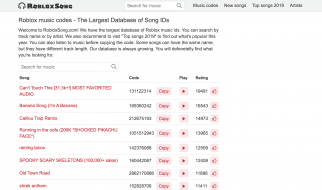You may have heard the term colloquialism when thinking about the English language, but what exactly is this and what is its function? In this article, we are going to look at an in depth definition of colloquialism as well as finding out what it is used for. We will go even further into the subject by viewing some examples of how colloquialism in used in both day to day conversation and as a literary device.
Colloquialism
Colloquialism Definition
Colloquialism is also known as colloquial language and is a form of speaking which uses an informal tone and words. It is used in a casual context and is much more easy to listen to and read than a more formal text or conversation. When using colloquialism as a figure of speech, one would expect to hear terms which are not technical and language which is idiomatic and not specialist.
Colloquialism can be used as a literary device , and this is more common than you might think especially in pieces of work where the author wants to speak to the reader on a more informal level. It can help a writer to make a point much more easy to understand and can cause the text to be less intimidating to read.
Depending on where you are in the world will depend on the colloquialisms you will hear in every day speech., for example English speaking countries such as the UK, the USA and Australia all have very different colloquial expressions and what is used in one country, may make no sense in another. Although, that being said, most English speaking countries have a knowledge of the colloquialisms used in other countries and so would know what you were referring to.
Colloquialism Examples
Colloquialism In Conversation
During you day to day conversations, you will probably notice that colloquial language is used far more often than any sort of formal speech. We are now going to take a look at some colloquialisms which you may come across during casual conversation.
Y?all is used as a shortened version of ?you all? For example, ?are y?all coming to the movies this weekend? ?
Buzz off is used to tell someone to go away.
Being blue is used to refer to being sad. For example, ?my brother has been blue all day .?
Frequent colloquialisms used are gonna and wanna which refer to the phrases ?going to? and ?want to?. For example, ?You?re gonna wanna see this! ?
To go nuts is colloquial language for going crazy. For example, ?My dad is going to go nuts when he sees what I?ve done to his car .?
Being chicken means to be scared. For example, ?Don?t be a chicken, just go and ask him out .?
Ain?t is colloquial language for is not. For example, ?I ain?t going to read that book, it looks boring .?
The word ace is used to talk about something really good. For example, ?Have you heard her sing, she is ace .?
The word cheers is often used colloquially in place of thank you. For example ?Cheers for picking up my breakfast from the take out cafe .?
To take a rain check is a common colloquialism which means to cancel plans until a later date. For example ?I?m not feeling too great, can we take a rain check on lunch today ??
To freak out is colloquial language meaning to get worked up. For example, ?I am going to totally freak out if I don?t pass this test .?
Using the term ?what?s the buzz? is a colloquial way of asking if there is any news to report.
A more recent colloquialism is the word bae, which is used to refer to a boyfriend or girlfriend, or indeed a spouse. For example ?I?m really missing bae right now, he?s away on vacation until next week. ?
Colloquialism In Literature
As we mentioned earlier, authors will sometimes use colloquialism in their writing in order to make the piece of writing sound more natural and how it might sound in a real life situation. The terms used can be slang terms or informal phrases and words, making the text a lot more easily digestible.
In Mark Twain?s The adventures of Huckleberry Finn, he used colloquial speech to give his characters more authentic feel, this is seen in the following example. ?I don?t wanna go back there no more .? I didn?t cuss anymore as the window did not like it but from time to time I did it again because pap didn?t have any objections .?
In Burro genius written by Victor Villasenor, there are many examples of colloquialism, most notably in the following extract; ??I don?t understand.? my father roared as he put his money back into the pocket . ?Hell, I have forgotten more than most people, even you would understand? ?Salvodor ,? my mother said quietly ?You and Mundo should go outside whilst I speak to this woman by myself.? ?Damn great idea .? my father said.
In John Steinbeck?s Of mice and men, there are many excellent examples of colloquial language throughout the text, one such example can be seen in the following statement. ?Don?t allow him to drag you in ? but if that son of a bitch clocks you then let ?im have it .?
We are now going to look at another example from Huckleberry Finn where the writer uses colloquialism in the following sentence. ?What?s the use in you learning right when it is too troublesome doing right and ain?t any trouble doing wrong ??
In The catcher in the rye we can see another example of colloquial language when viewing the following passage. ?Once I was all ready to go, once I had my bags and everything, I stood next to the stairs for a while to take one more look down that Goddamn corridor .?
Conclusion
Colloquial language is something that you are going to come across very frequently when speaking and reading in the English language. It is a way of speaking that is casual and is used in many informal conversations. It is also used in a literary context by writers when they wish to give the piece of writing a less formal tone and is a great way to connect with the reader.
Colloquialism Infographic
The post Colloquialism: Definition and Useful Examples of Colloquialism appeared first on 7 E S L .
Reference
- Idioms
- IdiomWiki
- Idioms Twitter

